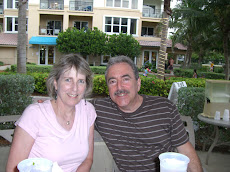 The Wikipedia says:
The Wikipedia says:Stokely Standiford Churchill Carmichael (June 29, 1941 – November 15, 1998), also known as Kwame Ture, was a Trinidadian-American black activist active in the 1960s American Civil Rights Movement. He rose to prominence first as a leader of the Student Nonviolent Coordinating Committee (SNCC) and later as the "Honorary Prime Minister" of the Black Panther Party. Initially an integrationist, Carmichael later became affiliated with black nationalist and Pan-Africanist movements.
Flash back to 1979. Sarah was a reporter for the FAMUAN, a student newspaper at Florida A&M University, while a student in journalism there. As it turns out, Kwame Ture [Charmichael's new name] came to FAMU to present his ideas on black nationalism and the Pan-Africanist movement. I happened to be the reporter assigned to the story, so when Ture made it to Tallahassee, I met him at his hotel room for the interview. He may have been suprised to see a white person turn out from a historically black college where he had come to spread his ideas and gain recruits. He was polite, talked about his ideas and I wrote down what he said. He must have kept it simple, even though I knew he was dissing whites and espousing why blacks would be better off in Africa.
Later that evening, Ture presented to an audience of 200 students [so few showed up]. His words were more radical that evening, but the audience was losing interest fast. The beliefs of the 60s were just not making it in 1979 - most of the young students at FAMU were there to take advantage of developing careers and the future middle class life promised to those with a college degree. This was a tough sell for Ture.
The funny thing about the whole evening, I think I was the most radicalized person in the room, as I was a student of the 60s and returning to school for a journalism degree at age 28. I knew Stokely Charmichael of the 60s and he had been a hero to many of us in the civil rights and antiwar movement and he was with SNCC. Now the irony - Ture must have given up on change in America, left behind the many whites that had supported the movement he supported, and taken his beliefs to a desire to live among only blacks, in Africa.
What happened to Ture after this? In 1967, Carmichael stepped down as chairman of SNCC and was replaced by H. Rap Brown. He attempted to clarify his politics by writing the book Black Power (1967) with Charles V. Hamilton and became a strong critic of the Vietnam War. He traveled to North Vietnam, China, and Cuba. As a part of the ultimately unsuccessful 1968 attempt at merging the Black Panthers and SNCC, Carmichael was made an honorary prime minister of the Black Panthers.
However Carmichael soon began to distance himself from the Panthers and in 1969, he and his then-wife, the South African singer Miriam Makeba, moved to Guinea-Conakry where he became an aide to Guinean prime minister Ahmed Sékou Touré and the student of exiled Ghanaian President Kwame Nkrumah.
He continued to travel, write, and speak out in support of international leftist movements and in 1971 collected his work in a second book Stokely Speaks: Black Power Back to Pan-Africanism. This book expounds an explicitly socialist, Pan-African vision, which he seemingly retained for the rest of his life.
Ultimately settling in Guinea, in 1978 he changed his name to Kwame Ture to honor African leaders Nkrumah and Touré. He died of prostate cancer at the age of 57 in Conakry, Guinea.
Carmichael is credited for coining the phrase institutional racism. Institutional racism (or structural racism or systemic racism) is a form of racism that occurs in institutions such as public bodies and corporations, including universities. In the late 1960s he defined the term as "the collective failure of an organisation to provide an appropriate and professional service to people because of their colour, culture, or ethnic origin".
Civil rights leader Jesse Jackson gave a speech celebrating Ture's life, stating: "He was one of our generation who was determined to give his life to transforming America and Africa. He was committed to ending racial apartheid in our country. He helped to bring those walls down".



No comments:
Post a Comment